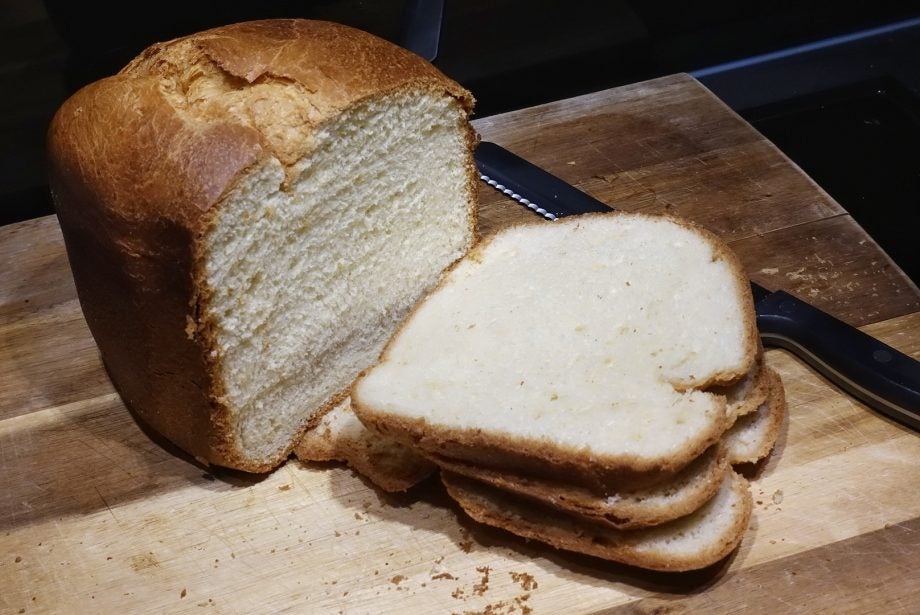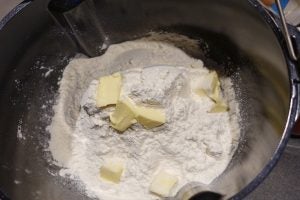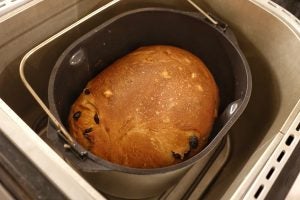Breadmaker vs store-bought bread: Which is best?

Bread is a basic item on many a grocery list. But what if you upped your game and made your own? Now, we’re not suggesting spending an afternoon elbow deep in dough Paul Hollywood style (unless that’s what you’re into) – but rather investing in a machine that can help you produce everyday loaves with ease.
Most breadmakers come with a list of standard recipes and detailed instructions on measuring and adding in your ingredients. After this, press a few buttons and put your feet up.
Your first point of consideration should be estimating how much bread you eat. Does your family get through several loaves a week? Or do you often end up binning the mouldy remnants of weeks-old bread?
Related: Best bread makers

A breadmaker is most useful for those who consume a fair amount of bread, particularly as homemade bread doesn’t contain the preservatives that are in most loaves sold in shops – meaning you only really have a couple of days to eat it. On the plus side, this means you’re in control of what goes into your bread.
You can decide to cut down on sugar and butter for a leaner loaf, or you can mix in a different flour, such as wholewheat, spelt or rye. Most breadmakers also come with specialist gluten-free programs.

Depending on the model, you may get further perks, such as dough programs (for making buns, focaccia, ciabatta or the like), as well as settings for making jam or even yoghurt.
But how does it work out cost-wise? A standard recipe for a medium-large white loaf contains 570g of flour, 25g of butter, 1.25tsp of yeast, 1.5tsp of salt, 1tbsp of sugar and 360ml of water. In my calculations, the ingredients cost would roughly be 61p.
- Sainsbury’s Strong White Unbleached Bread Flour £0.70/kg – 40p
- Allinson Easy Bake Yeast £11.00/kg – 4p
- Sainsbury’s English Butter £6.40/kg – 16p
- Sainsbury’s White Granulated Sugar £1.00/kg – 1p
- Sainsbury’s Table Salt Bottle £0.40/kg – 0.3p
In addition to ingredients, there would be the electricity cost. However, previous estimations show an average breadmaker consumes under 0.5kWh per standard loaf. According to energy price comparison service UK Power, the average cost of electricity per kWh is 14.37p. This means the power needed to bake a loaf of bread would cost you 7p or less, and the overall cost of your standard white loaf would be about 68p.

Now, an 800g Sainsbury’s Medium Sliced White Bread – the cheapest loaf available at the supermarket chain – costs 45p. But if you’re looking for something more akin to a freshly baked loaf, the most affordable 800g Sainsbury’s Farmhouse Loaf White Bread would cost you £1.10.
A breadmaker can set you back anywhere between £50, such as the Swan SB1041N Quickbake, and £250, such as the Panasonic SD-ZX2522. You’d have to make approximately 119 loaves with the Swan and a whopping 595 loaves with the Panasonic before you make up the difference with the £1.10 cost of the farmhouse bread.

But the pricier the breadmaker, the more likely you are to reap the rewards of a greater variety of programs, enabling you to make your own brioche or panettone. Meanwhile, even the more affordable machines allow enough flexibility in the recipes for you to decide the best ingredients. And when you get that whiff of freshly baked bread, followed by the taste of a warm homemade slice, it may just be worth it.
- Read our guides to the best bread maker recipes and solving common breadmaker problems


